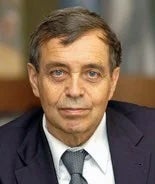Ever since the proposal and demonstration of quantum dots in 1980 by Drs. A. Efros and A. Ekimov (the recipient of the 2024 Nobel Prize), the relentless advancement of nanotechnology has continued unabated. Nowhere is this progress more evident than in Very Large Scale Integrated Circuits (VLSI) and Thin Film Transistor (TFT) technologies.
The minimum feature size of silicon VLSI—containing up to four trillion transistors on a single chip—was reduced to 3 nm in 2022, with plans underway for 2 nm technology and beyond. Meanwhile, TFTs fabricated on glass, and even on cloth or paper, enable integrated circuits with 50 nm tolerances over square-meter-scale areas. These technologies have become disruptive, with applications spanning 5G and Beyond-5G communications, robotics, autonomous vehicles, biotechnology, medicine, security, education, artificial intelligence, defense, and electronic warfare.
In this talk, I will discuss the counterintuitive physics of ballistic and plasmonic electron transport in deep submicron device channels. A deeper understanding of this new physics could help mitigate the astronomical costs associated with the design, characterization, and parameter extraction of nanoscale silicon VLSI.

Dr. Michael Shur is the Patricia W. and C. Sheldon Roberts Professor of Solid State Electronics and a Professor of Physics, Applied Physics, and Astronomy at Rensselaer Polytechnic Institute.
He is also a co-founder of Sensor Electronics Technology, Inc. and Electronics of the Future, Inc.
A Life Fellow of the U.S. National Academy of Inventors, IEEE, APS, ECS, Optica, and SPIE, Dr. Shur is also a Fellow of AAAS, IOP, and IET.
His recognitions include IEEE, IET, and ECS Awards, the Tibbetts Award for Technology Commercialization, the Senior Humboldt Research Award, RPI Research Awards, https://faculty.rpi.edu/michael-shurBest Paper Awards, and honorary doctorates from St. Petersburg Technical University and the University of Vilnius.
Dr. Shur serves as an IEEE EDS and IEEE Sensors Council Distinguished Lecturer and is a Foreign Member of the Lithuanian Academy of Sciences.


